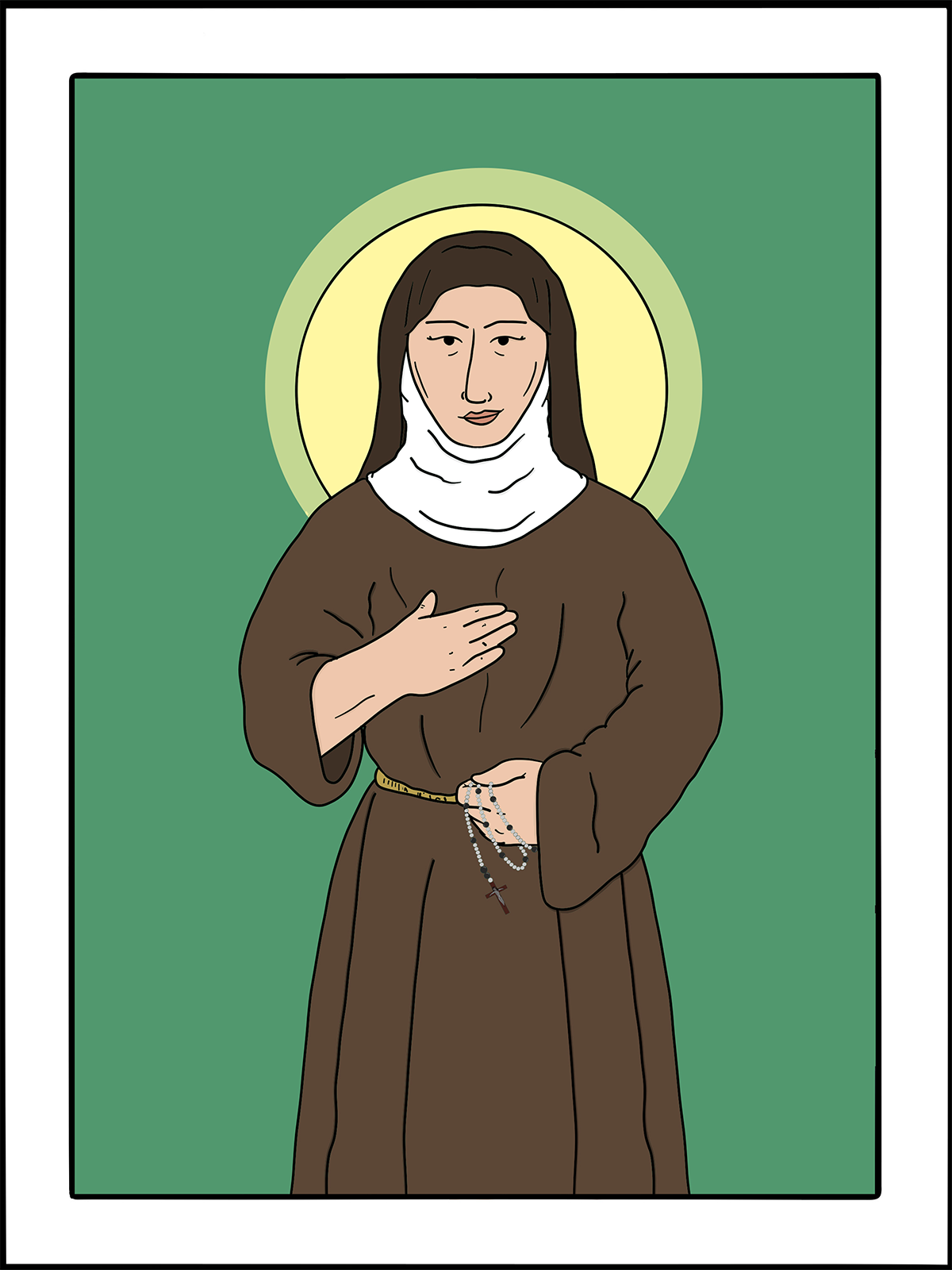
February 22
Margaret of Cortona
Monastic, 1297
art by Rev. Kirsten Kohr of Uhrichsville, Ohio Grant, O God, to all your people, as to your servant Margaret of Cortona, the spirit of repentance and supplication, that we might seek and desire nothing in this transitory life above you; through Jesus Christ our Lord. Amen.
Margaret's story is one that raises questions at each of the many turns it took. She was born into a farming family outside the village of Laviano, near Perugia. Her mother died when she was a child and after her father remarried, there was enough tension in her home that she ran away. The various accounts of her life remark on her beauty and suggest it might have been jealousy that created ill feelings in her stepmother. With the burden of grief and discomfort in her home, it is not surprising that she turned outside her home for affection from those attracted to her for her beauty.
At some point, she left her home and native village and took a position as a servant in a wealthy man's home. When he took her as his mistress, it was with a promise that he would marry her. She bore him a son, and despite that obligation, he still held back from the unlikely marriage of a nobleman with a farm girl. She continued to live with him in apparent luxury, though without the stability and respect that marriage would have provided. Where previous perspectives might have seen a loose, if not scheming woman, it is perhaps just as obvious that this was a young woman seeking a place of acceptance and safety whose trust was misplaced in the man with whom she sought to build a life.
That all came to an end at his death. He had been away, either on a journey or out hunting, and his dog returned without him. The dog led Margaret to the place where her child's father was buried, the victim of murder. In her grief, Margaret decided to return to her father's house. He refused to admit her, and her native village turned its back on her. In grief and abandonment, she took her son and sought refuge with the Franciscans. They found her a home with devout women who provided a home for such cases. After three years of probation, she became a Tertiary of the Franciscans and her son eventually became a Friar. She spent the balance of her life following a strict pattern of life and an intense spiritual life dedicated to the Passion of Christ and his Presence in the Eucharist.
Her own experience led her to establish a hospital and home for those in need, and she gathered a group of women to live together in the religious life and to serve as nurses. She also took an active role in public life, twice challenging the Bishop of Arezzo for his warlike and extravagant lifestyle. She died on February 22, 1297.
While in prayer, Margaret heard the words, "What is your wish, poverella (little poor one)?" and she replied, "I neither seek nor desire for anything but You, my Lord Jesus.”
Excerpted directly from “Lesser Feasts and Fasts 2022,” p. 106-107.
Lessons and PsalmZephaniah 3:7-13
Psalm 30:6-13
Luke 7:36-50
Preface of a Saint (2)

